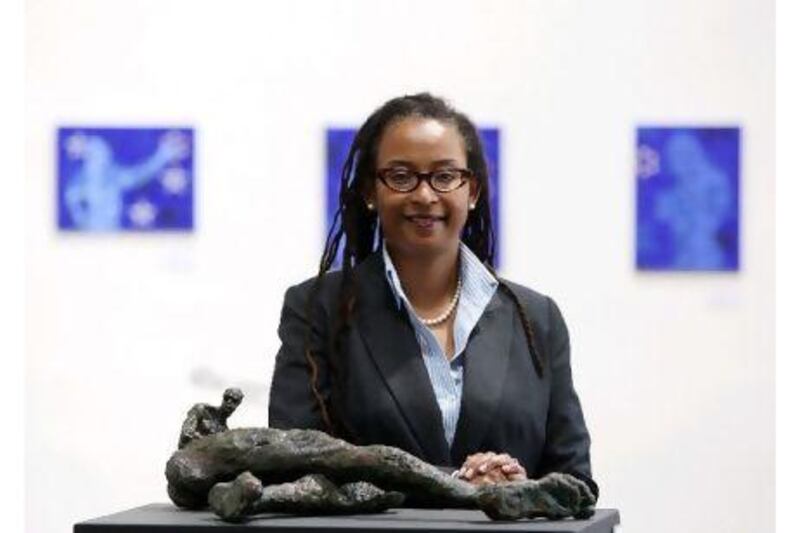Shannon Ayers Holden is the project manager for The Mojo Gallery in Dubai. Ms Ayers Holden grew up in Phoenix, Arizona, but lived in New York City for most of her adult life before moving to the UAE with her husband four years ago. She is currently working on a four-part series on contemporary African art, the first large-scale exhibition of its kind in the region. The exhibition runs until next month.
Are you a spender or a saver?
I am a saver by nature, but will splurge every now and again for something that I really, really want or need. I think it comes from a combination of being taught to value money - and hard work - and me just being a saver by nature. I don't like to shop; never have.
How would you describe your financial journey so far?
Up until the time I started working for myself, my financial journey was pretty conservative and somewhat uneventful. I made a very decent salary, was single, had no kids, plenty of discretionary income and consistent savings in the range of 10 per cent to 20 per cent.
That all changed when I bought a business, a hair salon that I frequented as a regular client in Harlem, New York. One day, when I called to make my standing appointment, I blurted out to the owner as an afterthought that if they ever thought of selling the business or taking a partner would they consider me. They were, and they did. I wrote a business plan, got a small-business loan and became the owner of a business I really knew nothing about. Eventually, I was able to expand the service offerings and include spa services.
After a period of time, I quit my corporate job to run my business full time. However, within 30 days of me owning the business, the two top performers walked out - with about 30 per cent of the business - and opened a shop across town. I knew very little about the business except from the perspective of a customer, so my learning on the job was immediate, brutal and a little scary. With hard work, it took about 18 months to get back to where the business was when I bought it. From there, I was able to expand the business, terminate an unfavourable lease with my landlord and buy and renovate a building that became the new home for the expanded hair salon, barber shop and day-spa business. The two employees who left split up within two years, closed their doors within two-and-a-half years, and most of the business returned within three years.
Did you make any financial mistakes along the way?
Plenty! I was lucky enough to buy a few buildings in New York City, including the one for the hair-salon business. I started renovating them at the same time I was expanding the business and, thanks to my naivete and some rather unscrupulous contractors, I quickly was over budget and out of funds, and saddled with a banking partner that had lost interest in my projects. It took a while, but I was able to find a much smaller bank that understood small businesses in urban markets like Harlem in New York City. I was able to refinance the projects and cut several points off my interest rates. And the property values increased significantly during that rough and tumble period.
What is the most valuable financial lesson you've learnt?
To try to plan as much as possible BEFORE starting a major project and, whatever you have budgeted for the project, add some zeroes to it. That's the theory. In reality, if I knew what I know now and had planned better for my business expansion and real-estate projects, in particular, I'd still be working at my corporate gig, wishing I had gone into business for myself. Another important financial lesson I have learnt is to invest in a relationship with a financial adviser, personally and professionally. Finally, mistakes are good learning tools.
Do you believe in planning for the future?
Yes, I do. And I believe it is necessary to revisit the plan frequently.
Is money important to you?
Money is important; however, financial freedom is more important to me.
What is your idea of financial freedom?
To be able to have a quality of life of my choosing.
Do you approach money and finances differently in the Emirates?
Not at all.
What's your philosophy regarding money?
Money is a pillar in the foundation for the life of one's choosing. After graduating from college, I moved to New York City and was pretty much on my own in the sense that I didn't have a trust fund or a rich uncle to support me. I was determined to support myself and, for the most part, was able to despite some bumpy roads along the way.
What do you enjoy spending money on?
Really good chocolate, professional cooking tools, dinner parties and entertaining friends. And "I love you" gifts for my husband.
As told to Felicity Glover







